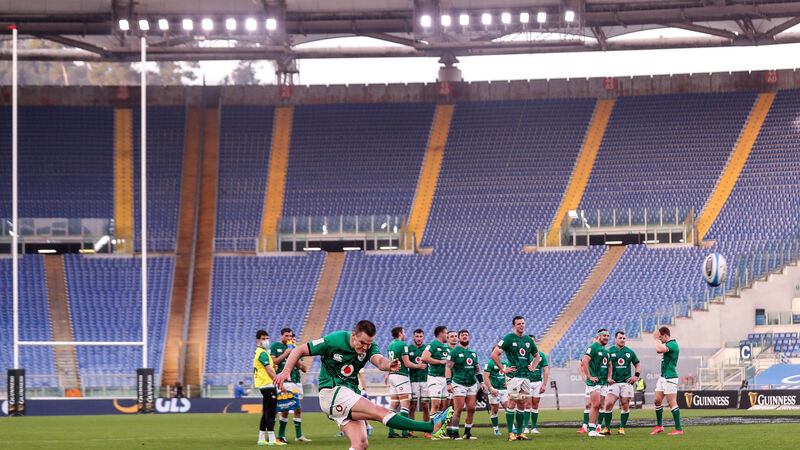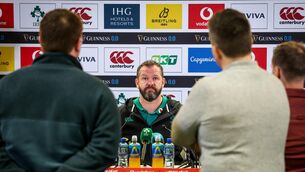Donal Lenihan: Every debate finds its way back to the future of Ireland's No. 10

Ireland's Johnny Sexton takes a kick at the Stadio Olimpico. Picture: INPHO/Tommy Dickson
First, the good news. Ireland rediscovered their attacking flair in a comprehensive win over Italy in Rome.
Now the reality check. Having conceded 150 points and 19 tries in their three championship games to-date, Italy are rubbish.










